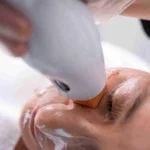The term ‘allergy’ refers to harmful reactions the body has, often to substances that would not usually cause problems. Some common examples of allergies include hay fever and food allergies.
The most common way to test for allergies is an allergy skin prick test. In this test, a small amount of liquid containing extracts from the allergen—the substance you are allergic to is injected below your skin. Find out more about allergy test in Singapore at Dr Ben Medical Clinic.
The doctors will then keep a keen eye to check if there is any reaction. If there is a reaction, it will be visible as a red bump after about 15 minutes. That’s if the allergy is present.
If no reaction occurs, then there isn’t likely any allergy. You can also get tested for specific allergies or intolerances by having blood tests done to check for elevated levels of antibodies used in your immune system to defend against certain substances.
Patch test and elimination diet may also be used but they are the least common ways of testing for allergies. In a patch test, a tiny amount of the substance you may be allergic to is taped onto your skin to see a reaction. An elimination diet involves taking out certain foods from your diet, one at a time, and then reintroducing them to observe any effects on the skin or body.
Every day, health professionals conducting allergy skin prick tests include doctors, nurses, pharmacists, and other practitioners. If you have immunodeficiency or other medical issues that may affect the test, you should consult your doctor prior to being tested.
If you are living with severe allergies you may be referred for additional testing to determine which allergen triggers the reaction. Allergy testing kits are available for purchase online, but it can be difficult to ensure their contents are genuine without medical guidance. Some pharmacies also sell allergy testing kits, typically at a lower cost than internet-purchased ones.
You can buy hay fever relief treatments from most drugstores in the form of tablets, nasal sprays containing antihistamines, decongestants, or other medications. As with allergy testing kits especially if you want to test for allergies at home, it is advised that you consult your doctor before using them to make sure they are suitable for you and the condition you are treating.
What is a Simple way I should use to Check for Allergies
When going for allergy testing in Singapore, a change of diet is often all that is required to identify food allergies. You can also try working out which foods do not agree with you by keeping a record of everything you eat and noting any reactions such as an upset stomach, hives, or runny nose.
Note that vitamin B12 deficiency may cause symptoms similar to those experienced by people with food intolerances, so medical advice should be sought before eliminating certain foods from the diet. It is also worth pointing out that you can also suddenly develop allergies at any time, even as an adult.
Therefore, it really shouldn’t come as a surprise if you get the symptoms akin to allergic reaction in adulthood. Hay fever is most likely to affect people who grew up in dusty or polluted areas such as large cities. Children tend to grow out of their hay fever symptoms, but some adults find them persisting into adulthood and beyond.
How common are Allergies?
Going by statistics on allergy testing in Singapore, Allergies are very common, with an estimated 10 to 30 percent adults affected and an estimated 4 out of 10 children struggling with hay fever. Anaphylaxis is a rare but life-threatening reaction to certain allergens that occurs within minutes of exposure. The risk of suffering from this potentially fatal condition can be reduced by avoiding the allergen or carrying an adrenaline injection pen if you know you’re at high risk.
What are the ten most Common Allergies and are there any Long-term Effects of Allergies?
The most common allergies are hay fever (pollen), food (nuts, dairy, etc.), asthma (dust mites, pets, pollen), hives/nettle rash (bees stings), urticaria (nettle rash or hives), conjunctivitis (hay fever, dust mites), animal dander, poison ivy/oak and environmental. Certain types of allergies can cause the immune system to overreact, which may lead to more severe reactions in some cases. For example, people with atopic dermatitis often find that their skin reacts adversely to different touch stimuli such as scratching or pressure applied to it. In rare cases, breathing in high levels of allergens can lead to long-term health problems such as chronic obstructive pulmonary disease.
What are the Risk Factors for Allergies?
Genetic predisposition, environmental conditions, and other factors may all play a role in determining whether you will be affected by an allergy. However, even if you have a family history of hay fever or pet allergies, it doesn’t mean that you will experience them yourself. The chance of developing asthma increases with age, but if a parent has the condition, there is some chance their child will suffer from it too.
Will Allergies go away on their own?
Another common question we get among patients seeking allergy testing in Singapore is whether an allergy can go away on its own. Now, the answer to this is pretty straightforward.
In most cases, allergies will disappear in a matter of weeks without treatment. This is known as becoming desensitized to the allergen. However, it can sometimes take years for symptoms to recede, and you may experience temporary flare-ups from time to time. In very rare cases, respiratory problems such as asthma become long-term conditions that require ongoing management or even surgery.
Allergy sufferers who experience occasional symptoms can choose from a range of treatments depending on how badly they react when exposed to the allergen. Most hay fever sufferers find relief through over-the-counter medication, but stronger prescription drugs are available for more severe cases. Immunotherapy using allergens in the form of injections has been only recommended for patients with asthma but is now becoming widely used to treat hay fever and other allergies.
The Bottom Line
Allergies are very common and can be treated with over-the-counter drugs, immunotherapy, and in some cases, surgery. If you suspect that you or your child may have allergies, consult a doctor for advice on how to get allergy testing in Singapore. Give us a call at +65 888 12344 to schedule an appointment.
Dr Ben Medical @ Raffles Place : Ear Wax Removal | Allergy Testing | Erectile Dysfunction
1 Raffles Pl, #04-50, Singapore 048616
+65 8881 2344
https://www.drbenmedical.sg



















